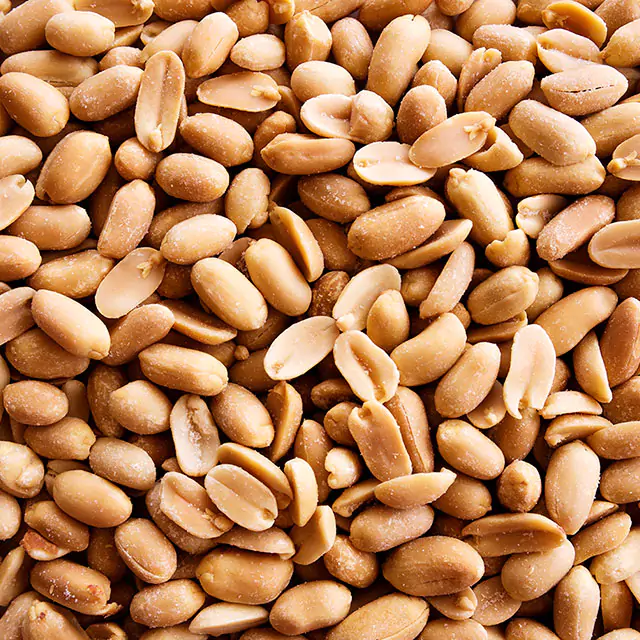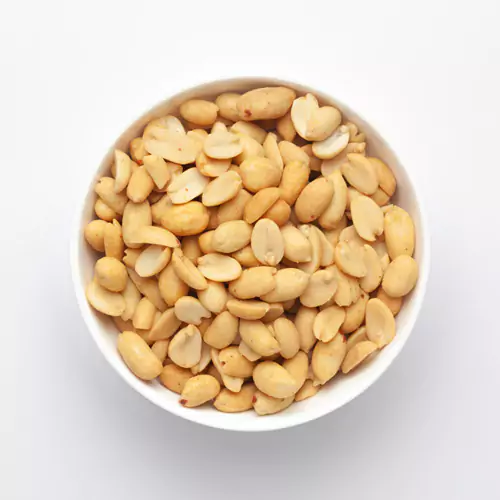We are focused on developing and maintaining positive working relationships with growers across the Southeast Growing Region.
We have an expansive buying network that helps us to market our high-quality seed peanuts to growers and to procure the farmerstock from growers required for the business. We actively participate in all industry associations that support the research and promotion to benefit all segments of the industry as well as the consuming public.
All our processing locations are FDA-registered, FSMA compliant, and BRCGS-certified.
We have 3 shelling plants in the USA, which are all strategically located in the Southeast Growing Region where the majority of USA peanuts are grown.
Olam Edible Nuts is a Custom Peanut Processor. We specialise in Toll Processing, which includes Pre-Cleaning, Remilling, and Blanching. We are also experts in producing Peanut Ingredients, such as Dry Roasted Peanuts, Dry Roasted Peanut Granules, and Peanut Paste/Butter/Variegate. We have 4 processing plants in the USA, which are strategically located across the Southeast Growing Region, the Virginia-Carolina Growing Region, and the Southwest Growing Region.
Read ofi news
ofi (olam food ingredients), a global leader in naturally good food and beverage ingredients, says developments in data and technology – from granular deforestation mapping and child labor monitoring to AI-powered carbon measurement tools – are accelerating progress towards its Cocoa Compass sustainability ambition. It is also providing food and beverage companies with enhanced traceability and transparency ahead of new regulations in Europe and beyond.
The latest Cocoa Compass highlights based on 2022 data include:
- New analysis showing over 30,168 farmers in ofi’s cocoa supply chain are earning a living income[1], putting the business on track to reach its 2030 target of 150,000 cocoa farmers earning a living income.
- A 395% increase in the number of children receiving education support in 2022, compared to the 2018 baseline.
- A 15% increase in the number of households covered by ofi’s Child Labor Monitoring and Remediation System (CLMRS).
- 6 million trees distributed by ofi, working with its customers and partners, for agroforestry and income diversification, from 2018 to 2022.
- 79% of farms in ofi’s sustainability programs have been polygon mapped[2]
United States Agency for International Development (USAID), Indonesia Mission Director, Jeff Cohen, said: "We are proud to be working together with ofi and the Hershey Company to encourage cocoa farmers to adopt more sustainable agriculture practices—like diversifying their crops and allowing more trees to remain on their land—which will strengthen their resilience against climate shocks and improve their livelihoods[3].”
How do you differentiate between the environmental impacts of organizations across different geographies, local conditions, products, local regulations etc.?
For several years, ofi has been working towards assessing the true value (cost or benefits) of some of our operations on the ground. Our latest case study on Natural Capital Valuation: Assessing Natural Capital costs in coffee operations, delves into year-on-year monetary impact of our select coffee growing operations in five origins.
Globally, an estimated 12.5 million to 25 million smallholder farmers depend on the coffee industry for their livelihoods, according to figures from Fairtrade1 and the FAO2. However, the majority of these farmers face significant challenges including limited access to formal agronomy training, inadequate resources, small farm sizes and insecure land tenure. These factors often hinder the adoption of sustainable agricultural practices, which are crucial for preserving Natural Capital over the medium and long term. As a result, coffee production often imposes a cost on nature in the form of GHG emissions, degradation of soil structure and fertility, depletion of ground and surface water, and loss of natural ecosystem services critical to agricultural production.
To address these challenges, we employ Natural Capital valuation techniques, which leverage environmental economics to assign a monetary value (US$) to our impacts and dependencies, encompassing carbon emissions, water usage and ecosystem services. Quantifying Natural Capital in this way enables us to assess and mitigate risks while fostering investments that promote a positive impact on landscapes and ecosystem.
We evaluated twenty AtSource+ coffee farmer groups sourced from five different origins3 to assess their GHG emissions and water use related Natural Capital Costs (NCC). Reporting on the NCC is based on each metric tonne of product which makes the cost intensities very sensitive/ dependent on farm level yields. Thus, understanding the underlying yield dynamics is also crucial for interpreting these NCC footprints effectively.
The combined expertise of our local sustainability teams with partners such as Funcafé, TechnoServe, Côte d’Ivoire's National Nutrition program, USAID (United States Agency for International Development), and Global Alliance for Improved Nutrition (GAIN) delivers solutions to improve access to clean water, healthcare services and supplies, and nutritious food.
Initiatives range from using geo-location to identify and screen for infant malnutrition in farming communities in Côte d'Ivoire - where one in five children experience stunted growth and development - to fortifying key staples with vitamins and minerals in our processing facilities.


